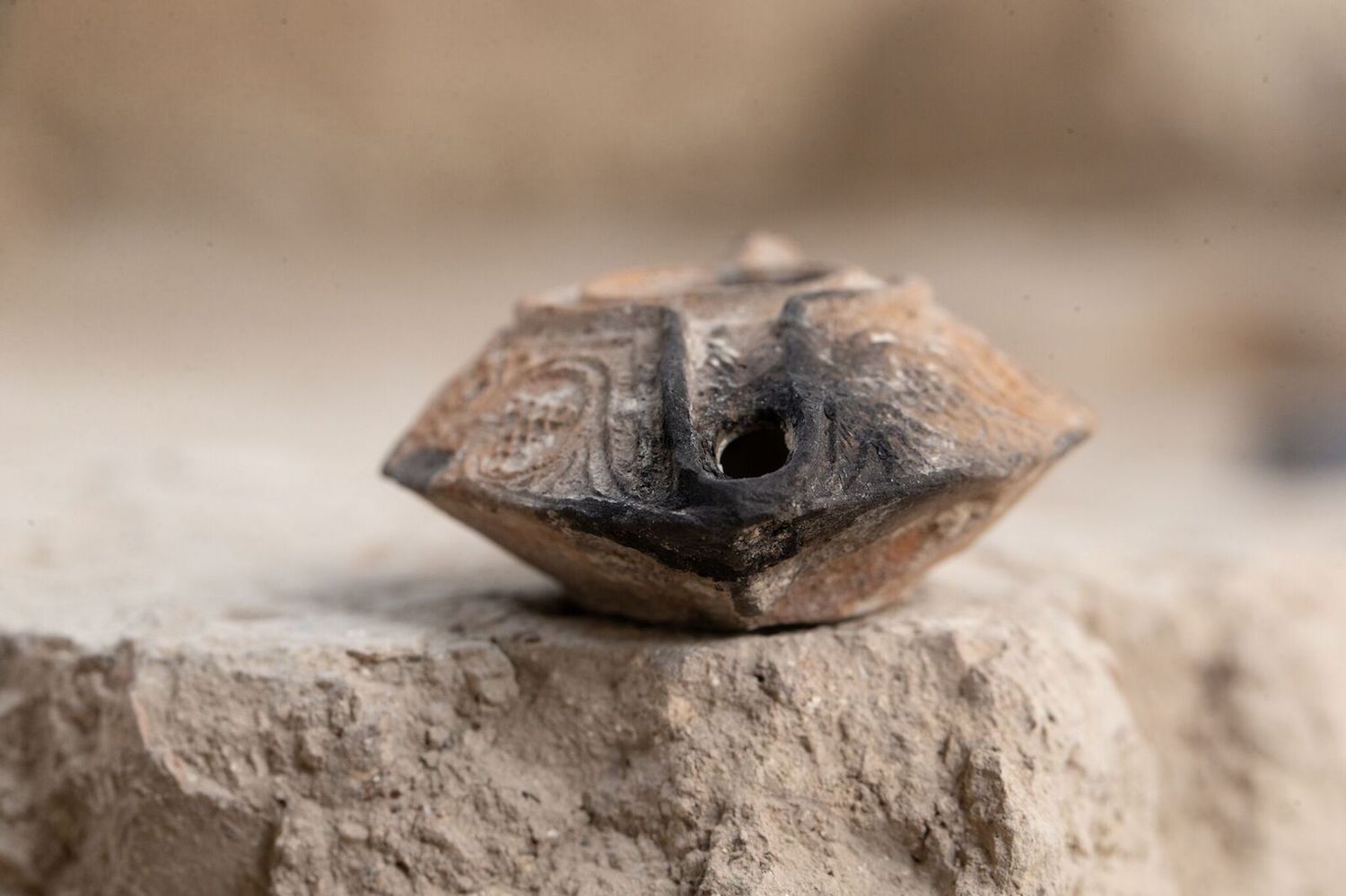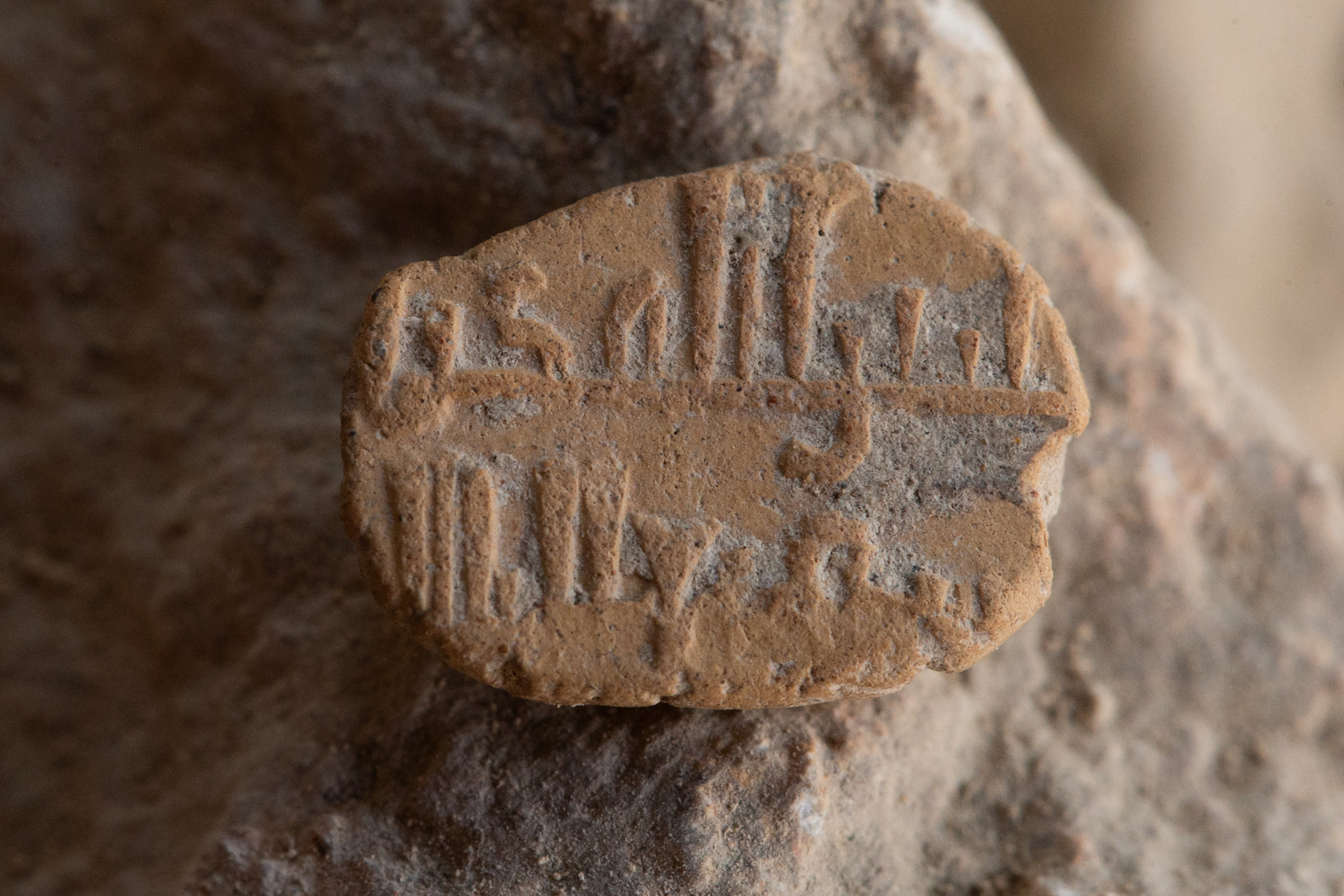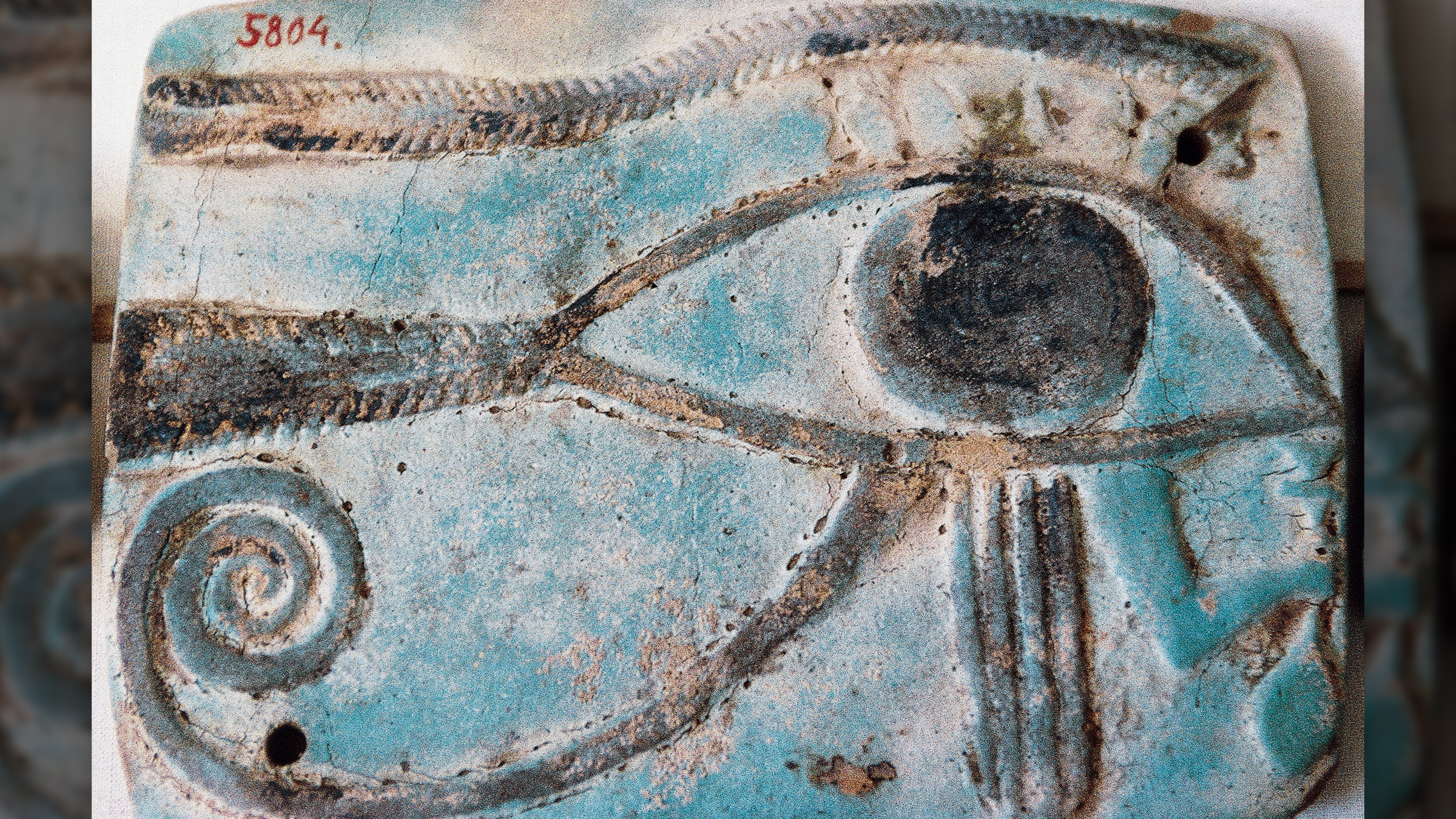Rare 1,000-Year-Old Amulet with Arabic Blessing Found in Jerusalem
Teams from the Israel Antiquities Authority (IAA) and Tel Aviv University unearthed the rare ornamental piece beneath the Givati Parking Lot in the City of David, in Jerusalem Walls National Park. In the past decade, archaeologists have uncovered numerous artifacts, including precious stones and gold coins, beneath the Givati Parking Lot — the largest excavation site in Jerusalem.
The amulet is a symbol of everyday life in early Jerusalem. Its religious inscription suggests the amulet was meant to bring blessings to its owner. "The purpose of an amulet like this is to gain personal protection," Yiftah Shalev of the IAA told Haaretz. "Since time immemorial, the purpose of amulets like these is to seek protection from the evil eye," Shalev added. [The Holy Land: 7 Amazing Archaeological Finds]
The archaeologists found the object in a small room where it was sealed under the plaster flooring. It’s unclear whether Kareem lost the amulet or if it was placed under the floor during construction as a blessing for the building. Either way, the plaster flooring is likely what helped preserve this piece, since clay tends to fall apart over time if not protected, Shalev told Haaretz.

The inscription is written in calligraphy typical of the Abbasid dynasty, reported Haaretz, which was at its height about 1,000 years ago. Pottery pieces found at the site, including an intact lamp, date to the same period, known as the Islamic Golden Age. Nitzan Amitai-Preiss of the Hebrew University of Jerusalem deciphered the partially faded inscription on the amulet. The wording is similar to phrases found on ancient seals and roadside inscriptions along the route to Mecca, according to the IAA statement.
The Abbasids are thought to be descendants of the Islamic Prophet Muhammad’s uncle, Al-'Abbas ibn 'Abd al-Muttalib. They ruled from their capital in Baghdad, in modern-day Iraq, which was the center of science, technology and culture during the Islamic Golden Age, according to Encyclopedia Britannica. The period ended in 1258 when the Mongols, led by Hulagu Khan, seized Baghdad.

Original article on Live Science.
Sign up for the Live Science daily newsletter now
Get the world’s most fascinating discoveries delivered straight to your inbox.

Kimberly has a bachelor's degree in marine biology from Texas A&M University, a master's degree in biology from Southeastern Louisiana University and a graduate certificate in science communication from the University of California, Santa Cruz. She is a former reference editor for Live Science and Space.com. Her work has appeared in Inside Science, News from Science, the San Jose Mercury and others. Her favorite stories include those about animals and obscurities. A Texas native, Kim now lives in a California redwood forest.










